
-matt s.
gamer level 2
636 xp
636 xp
followers
3
3
Use my invite URL to register (this will give me kudos)
https://boardgaming.com/register/?invited_by=tasajara
profile badges
...
...
...
...
recent achievements

Novice Grader
Grade 20 more reviews or tips by clicking "Yes" or "No" in response to the question "Was this helpful?"
Grade 20 more reviews or tips by clicking "Yes" or "No" in response to the question "Was this helpful?"

Rated 50 Games
Rate 50 games you have played.
Rate 50 games you have played.

Critic - Level 2
Earn Critic XP to level up by completing Critic Quests!
Earn Critic XP to level up by completing Critic Quests!

Rated 25 Games
Rate 25 games you have played.
Rate 25 games you have played.
Player Stats
Critic (lvl 2)
425 xp
425 xp
Explorer (lvl 0)
50 xp
50 xp
Professor (lvl 0)
75 xp
75 xp
Reporter (lvl 0)
70 xp
70 xp
About Me
I love a wide range of games from simple to complex. I'll play almost anything once. The trick is finding the time and the right people to play them.
I have a board game block called "Matt's Board Game Back Room" which can be found at http://boardgamebackroom.blogspot.com
where I talk about games and game related subjects that interest me.
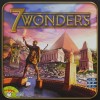
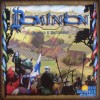











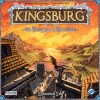
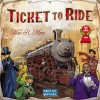
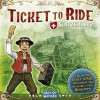







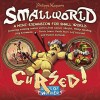

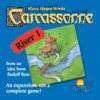


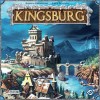






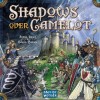



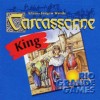








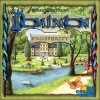

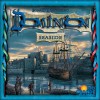




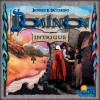



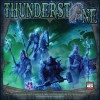


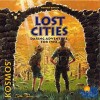






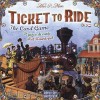













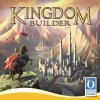
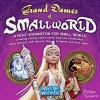
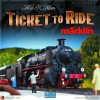


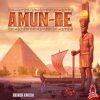
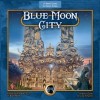

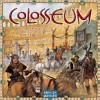







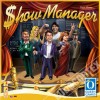
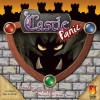







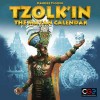





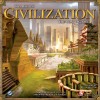


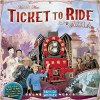

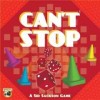








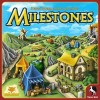
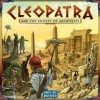







Jaipur
Game Backstory
You are a trader in Jaipur trying to collect and trade commodities then sell them on the market for money. Make the most money and you will become the Maharaja’s personal trader.
Gameplay Summary
This 2-player card game takes place over 3 weeks (rounds).
Each round consists of players alternating turns taking one action per turn. The 3 possible player actions are:
1) Pick up 1 commodity card from the face-up tableau OR take ALL of the camel cards and place them in front of you.
2) Trade commodities from your hand and/or camels (which you leave on the table in front of you) to pick up cards from the tableau.
3) Sell commodities from your hand to obtain ‘coins’ from the market (there is one type of ‘coin’ for each type of commodity). The coin values are higher the earlier you sell. You also get bonus coins if the sets of commodities you sell equal 3 or more.
Once 3 rows of coins are gone the round is over. Highest amount of money earned wins the round! Come out ahead on 2 of the 3 rounds and you win!
My Impressions
At first the game seems very simple, especially once going through the rules. In reality, the RULES are simple, but the actual game play becomes slightly more complicated. The complications occur because you have a hand limit and you have to work around that limit juggling it with several aspects:
* When to sell your sets of commodities. Should you sell a set of 3 for a smaller bonus now but bigger initial payoff (and perhaps prevent the other player from doing the same) OR should you wait a bit longer and pick up one or two more cards to get a bigger bonus a bit later? But selling a set now will also free up space in your hand for more commodities later.
* When to trade out sort of good stuff in your hand for better stuff on the table. If you trade it out, the other player may pick up when you put out to get a nice set for themselves. But, you might also be able to get a better bonus or better coins.
* When to pick up camels versus doing something else. Camels are always good to have but taking a large set of them from the table brings out more cards for the other player to be able to select from. This may or may not be good depending on how close to the hand limit they are at (and how close you yourself are).
* When to pick up commodities that your opponent wants but you don’t really care about. Picking them up may muck up your hand, but it can also prevent a huge score for the other player. Can you wait out holding it until they finally play that commodity if you do pick it up? Is there something better to pick up instead and put you over the top instead?
These are the types of decisions you have to weigh and make, hoping that the cards you need come out and possibly being forced to change up your plans if something unexpected happens.
However, even though luck is definitely there (it IS a card game after all) there is a lot you can do to help mitigate the luck depending on how to react the situation and manage your hand.
Final Comments
I love how this game plays out with a lot of options. You have a lot of flexibility in what to do within the confines of what becomes available on the table. And, even with the hand limit that is imposed, the extension of your hand with your collected camels on the table cannot be underestimated.
The key to this game is timing and control – when to pick commodities up, when to sell them, when to pick up camels and even what to pick up something that might negatively affect the other player.
Final Verdict
This is actually a nice casual/social game – you can have a conversation while playing. However, you still must pay attention to what the other player is doing and manage your hand properly to be successful at it.
I always enjoy playing Jaipur and I don’t expect to get tired of it for a long time.
I give it a BG rating of ‘9’